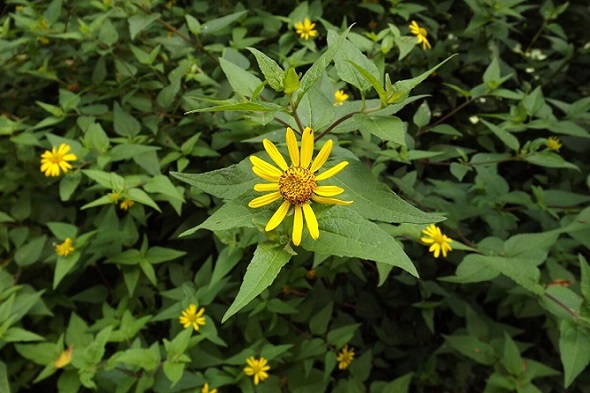The Phytochemical Ovatifolin from a Chilean Plant Shows Strong Potential Against Melanoma
Nikhil Prasad Fact checked by:Thailand Medical News Team Nov 26, 2025 3 months, 2 days, 9 hours, 21 minutes ago
Medical News: Growing Interest in Natural Cancer Fighters
A team of scientists from multiple Chilean and German institutions has uncovered promising anticancer effects from ovatifolin, a rare phytochemical compound extracted from the native Chilean plant Leptocarpha rivularis, also known as Palo negro. Their research focused on deadly melanoma cells and revealed that ovatifolin not only slows down cancer cell growth but also triggers cell death through several damaging pathways, according to this
Medical News report.
 The Phytochemical Ovatifolin from a Chilean Plant Shows Strong Potential Against Melanoma
The Phytochemical Ovatifolin from a Chilean Plant Shows Strong Potential Against Melanoma
The study was conducted by experts from Universidad Santo Tomás, Universidad de La Frontera, Universität Potsdam, Universidad Autónoma de Chile, Universidad Austral de Chile, Universidad del Bío-Bío, and Universidad Católica de Temuco. Their combined efforts helped isolate ovatifolin from the plant’s leaves and analyze its chemical structure using advanced imaging and NMR technologies.
How Ovatifolin Attacks Melanoma Cells
Melanoma remains the most dangerous form of skin cancer because of its ability to spread quickly. Standard treatments save many lives, but resistance to therapy is still common, creating demand for new solutions.
The researchers tested ovatifolin on two aggressive melanoma cell lines called A375 and A2058. The findings showed that ovatifolin sharply reduced their survival, especially at higher concentrations. Even at lower doses, the compound managed to halt cell growth, suggesting strong long term anticancer potential.
The study also revealed that ovatifolin pushes cancer cells into stress by rapidly increasing harmful molecules known as reactive oxygen species. This overload damages the cells from within. The compound also weakens the cells’ mitochondria, the structures responsible for energy production. Within just a few hours, treated cancer cells showed a dangerous loss of mitochondrial power and began dying.
Multiple Types of Cell Death Observed
Flow cytometry results showed that ovatifolin does not kill melanoma cells through one simple route. Instead, it triggers a mix of apoptosis, necrosis, and other damage linked to genetic breakdown. This mixture of effects is important because many cancer cells survive when only one pathway is targeted. By attacking on several fronts at once, ovatifolin becomes harder for cancer cells to resist.
Why These Findings Matter
Although this compound will need further testing in animals and future clinical studies, the discovery marks an important step forward. It highlights how traditional medicinal plants still hold untapped potential for modern cancer therapy. The ability of ovatifolin to both stop melanoma cells from multiplying and damage them through several internal mechanisms makes it an exciting future candidate.
In conclusion, the study demonstrates that ovatifolin exerts fast, m
ultifaceted damage on melanoma cells, raising hopes for new natural product-based treatments. More research is needed to confirm safety, effectiveness and long-term outcomes, but the early laboratory data already points to a powerful anticancer effect that could inspire future drug development.
The study findings were published in the peer reviewed journal: Antioxidants.
https://www.mdpi.com/2076-3921/14/12/1392
For the latest on Herbs and Phytochemicals, and also on cancer research, keep on logging to Thailand
Medical News.
Read Also:
https://www.thailandmedical.news/articles/herbs-and-phytochemicals
https://www.thailandmedical.news/articles/cancer
